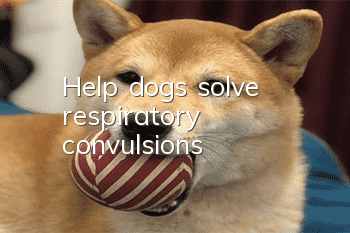Top 10 ways to train your dog to eliminate at designated points at home

1. Arrange time to go to the toilet. Puppies will tend to play, sleep, eat and drink before excreting. After these activities, take it to the toilet, try to take the puppy outdoors to relieve it, and prepare snacks to reward it.
2. Control the amount of food and water, because you will excrete as much as you eat. Remember, you decide when and where to eliminate, and regular feeding is key!
3. Once you choose high-quality dog food, don’t change it. Because many poor dog foods contain impurities with no nutritional value, although they are safe to eat, they increase the number of excretions per day. In addition, sudden changes in dog food and eating habits should be avoided.
4. When you are not at home, you can use a fence to limit the scope of your puppy’s activities. This is the best way to reduce accidents of peeing everywhere. A dog crate is also desirable. Because long-term confinement (more than eight or nine hours) can cause puppies to excrete in the dog cage.
5. Reward with snacks. This is the most effective method, but most people rarely use this method to train dogs not to pee in the house.
6. Establish a ritual for going to the toilet, that is, use the same door to go in and out every time, go to the same patch of grass to defecate, and then wait patiently until the puppy excretes, then let it be "good dog." Don't bother it with too many encouraging words. When you can predict when it wants to urinate, you can add "Come on D" or "Go to the toilet". When it is finished, call it "good dog" and give it a snack.
7. Gradually give your dog more responsibility. Take him to the place where he is going to go potty, leave him there, and then take him away when he is done. Gradually let it walk a short distance to the toilet on its own, and eventually it will know how to complete the entire process on its own. Note: Be sure that the puppy has actually gone to the toilet, otherwise you will receive an "unexpected surprise" later.
8. Be willing to get up for your puppy at night. You should let puppies under three months old go to the toilet at night. If you let him pee in the room, it will only delay the time required for training.
9. If your puppy accidentally doesn't pee in the designated place, don't punish it. This will only make it afraid to go to the toilet in front of you in the future.
10. Wait for the puppy to grow. Until a dog is five or six months old, its muscles can control excretion like an adult dog. If you can also reduce the number of times your puppy accidentally pees, he will soon be mature enough to control himself.
The above questions about dogs’ fixed urination and defecation belong to the category of dog behavior. In the future, we will regularly popularize some relevant knowledge, so stay tuned!
- What is the efficacy of six-linked hyperimmune serum for dogs?
- What to do if your dog has enlarged meatballs
- How to train a puppy? What should you pay attention to when training puppies?
- How to make a dog come when it barks?
- What training does a German Mastiff need?
- Four Principles of Dog Breeding
- How big can a Papillon dog grow? How should a Papillon dog be fed?
- Symptoms of kidney failure in dogs
- Can dogs eat yam?
- What to do if Samoyed has body odor



